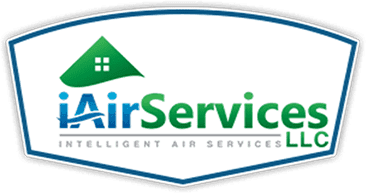Air Filters vs. Air Purifiers: Understanding the Differences and Complementary Benefits
With the increasing concern for indoor air quality, many homeowners are considering investing in air filtration or purification systems. However, understanding the differences between air filters and air purifiers can be confusing. In this blog post, we will delve into the nuances of these two systems and explore their complementary benefits. By the end, you’ll have a clear understanding of which option suits your needs best.
AIR FILTERS: THE FIRST LINE OF DEFENSE
When it comes to improving indoor air quality, air filters are the most common choice. These devices work by trapping particles as air passes through them. Here are some key points to consider:
- Types of Air Filters: There are various types of air filters available, including fiberglass, pleated, and high-efficiency particulate air (HEPA) filters. Each type has different filtration capabilities, so it’s important to choose one that suits your specific needs.
- Filtration Efficiency: The efficiency of an air filter is measured by its Minimum Efficiency Reporting Value (MERV). The higher the MERV rating, the more particles the filter can capture. We recommend using filters with a MERV rating of 8 or higher for optimal results.
- Maintenance and Replacement: Regular maintenance and timely replacement of air filters are crucial for their effectiveness. Follow the manufacturer’s guidelines to ensure proper functioning and longevity.
AIR PURIFIERS: GOING BEYOND FILTRATION
While air filters are effective in removing larger particles, air purifiers take the purification process a step further. Here’s what you need to know:
- Purification Technologies: Air purifiers use various technologies, such as activated carbon filters, ultraviolet (UV) germicidal irradiation, and photocatalytic oxidation, to eliminate a wide range of pollutants, including odors, bacteria, and viruses.
- Coverage Area: Consider the size of the room or area you want to purify. Air purifiers come in different sizes and have varying coverage capacities. Choose one that matches your specific needs.
- Noise Levels: Some air purifiers can be noisy, especially at higher fan speeds. If noise is a concern, look for models with noise-reduction features or adjustable fan speeds.
COMPLEMENTARY BENEFITS: THE POWER OF COMBINING BOTH
While air filters and air purifiers have distinct functions, they can work together to enhance indoor air quality. By combining these systems, you can enjoy the following benefits:
- Particle Removal: Air filters primarily target larger particles, while air purifiers excel at eliminating smaller pollutants. Using both systems ensures comprehensive particle removal.
- Allergen Control: Air filters are effective in capturing allergens like dust, pollen, and pet dander. Air purifiers, on the other hand, can neutralize airborne allergens, providing relief for allergy sufferers.
- Odor Elimination: Air purifiers equipped with activated carbon filters can effectively eliminate unpleasant odors from cooking, pets, or chemicals. When used in conjunction with air filters, they offer a complete odor control solution.
MAKING AN INFORMED CHOICE
Understanding the differences and complementary benefits of air filters and air purifiers is essential for improving indoor air quality. Depending on your specific needs, a combination of both systems may be the most effective solution. At Intelligent Air Services, LLC (iAir), we offer a range of air filtration and purification services tailored to your requirements.
Contact us today to learn more about our HVAC solutions and how they can benefit your home.
